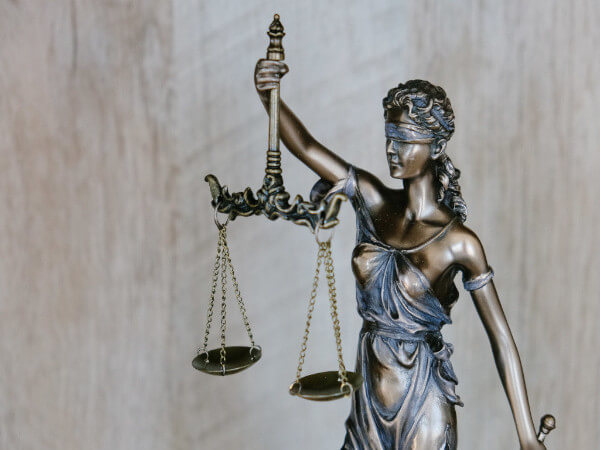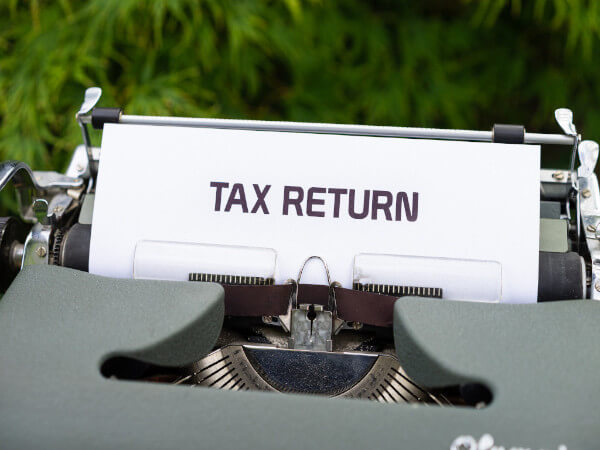An absconder, against whom proceedings have been initiated, not entitled to anticipatory bail- SC
The Apex Court, while setting aside the order of High Court, made an observation that an absconder or a proclaimed offender, against whom proceedings have been initiated, is not entitled to a relief of anticipatory bail. The procedural history of this case has its traces in Trial Court’s order which dismissed the anticipatory bail application on similar grounds. The trial court denied the anticipatory bail to accused as proceedings under Sections 82 and 83 of the Code of Criminal Procedure, 1973 had already been issued. Thereafter, the accused approached the High Court which allowed the application. Aggrieved by the order of High Court, the state approached the apex court and placed reliance on the verdict of State of Madhya Pradesh v Pradeep Sharma. The counsel contended that the person, against whom proclamation has been issued and the proceedings under above mentioned sections have been initiated, does not stand entitled to the benefit of relief under anticipatory bail. The court accepted the contention of the counsel and noted that the High Court missed out on the facts which stated that the proceedings had already begun under Sections 82 and 83 of CrPC. The court allowed the appeal and observed that what matters the most is the nature of allegations and accusations, and not that the nature of accusation arising out of a business transaction. The post An absconder, against whom proceedings have been initiated, not entitled to anticipatory bail- SC appeared first on LexForti . Did you miss our previous article… https://www.itcse.org/?p=250
Read MoreWhere Do Lawyers Work Today? The Ethics and Acceptance of Working Remotely
Remember when working remotely was taboo? Several years ago, I published a piece here on Attorney at Work titled “Solo Lawyers: Where Is Your Office?” Back then, lawyers working anywhere but a traditional bricks-and-mortar office with their firm name on the door typically glossed over their nontraditional working environment. Over time, the taboo surrounding less traditional work setups began to ease, and early in 2020, when COVID-19 hit the world, the stigma had all but disappeared. Today, the tables have really turned, and the lawyer in the bricks-and-mortar office is the less typical one. With that context, today we can boil down the question of where lawyers work to a much simpler answer: Lawyers work wherever we happen to be. Working Remotely Was Once Unthinkable in the Legal Profession At one time, the idea of a lawyer working remotely — even from home — was taboo. As an associate in Biglaw, the idea met with horror and was only semi-acceptable if you were sick. Then, the partners’ options were to allow you to actually use a sick day or let you work from home while recuperating. Working from home was better than not working at all, but it was definitely frowned on. In small law firms, where lifestyle mattered somewhat more, there was pushback against remote teams, too. Lawyers would argue that they could not effectively manage their team from afar, or ensure their team was working. Also, camaraderie would suffer if people were not face-to-face every day. Even for a solo lawyer, working remotely was frowned upon. We had ideas that clients expected us in an office (even if they didn’t come to see us). Somehow we were not real lawyers if we worked from home or anywhere besides a traditional brick-and-mortar office. Besides battling an entrenched workplace culture,
Read MoreKeeping Clients While Managing Extraordinary Change
Keeping clients when your firm is changing is a tricky business and involves a lot of reassurance — not just for them, but for you. I vividly remember interviewing a client about his relationship with his law firm, my client. While he was very satisfied with the firm’s work and the people doing it, he moved quickly on to his top concern. Unbeknown to me but known by him, the senior partner who served as the primary point of contact was dying of cancer. The client said to me, “I feel terrible about it … but what is going to happen to me?” Even when there are great lawyer-client relationships, clients are concerned about their own interests. They notice when senior lawyers start spending more time at their condos down south, or when younger lawyers come and go on their work and invoices. The Challenges to Keeping Clients Any number of events can create a potential challenge to retaining a client, including: The departure of a lawyerA change in company ownershipThe death of a lawyerA change in company leadership In general, law firms do a poor job of establishing the kind of institutional relationship that binds a client to the firm. In some cases, it’s because of ego or compensation; in some cases, the nature of the lawyer-client relationship can’t be replicated. And in some cases, it’s a lack of confidence in colleagues. While you can’t guarantee that clients will connect with new firm contacts (or vice versa), you can do many things to make planned or unplanned transitions go more smoothly. Keeping Clients: If You Need to Triage In the event of an unexpected change, here are some smart steps to take: Have the managing partner or client relationship partner contact the client immediately to establish that the client
Read MoreExplained: Validity of Stamp Paper [6 Months or 3 Years?]
>In this Article, the author walks reader through the concept of Stamp Paper and ponders upon the validity of a Stamp Paper! What is a Stamp Paper? An illustrative representation of a Non Judicial Stamp Paper. It is a piece of paper which bears a pre-printed revenue stamp. Any transaction gets legal validity, once being executed on a stamp paper of proper value. It brings legal authenticity to any valid agreement. What documents need to be executed on the Stamp Paper? Be it an agreement or a documented business transaction; if legal sanctity need to be added, one should execute it on the legal stamp paper. Documents like Lease Agreement, Sale deed, Loan Agreement, Affidavits, Memorandum of Association or Article of Association; need to be executed on the stamp paper. However, all documents are not to be executed post payment of Stamp Duty. A few documents are exempt from it. One can have a look into the Schedule I of the Stamp Duty Act, to understand the same. SCHDULE-I-Indian-Stamp-Act Types of Stamp Papers: Judicial Stamp PapersNon Judicial Stamp Papers Judicial Stamp Papers: Judicial stamp papers are used for legal purposes. If any legal document need to be submitted for the purpose of legal procedure; then, applicant execute the same in Judicial Stamp Papers. These are often called as, Court Fee Stamp Papers. These Stamp Papers are used to avoid Cash Transactions in the Court. A case might not get admitted, if court fees is not paid properly. Non Judicial Stamp Papers: Whenever someone enters into a transaction and intends it to give legal sanctity; then such transaction are documented in the stamp papers of proper value. State Government charges tax for any of such transaction. Hence, State Governments decide the rates of stamp duty to be paid. Therefore, every states
Read MoreOrder of remanding or extending the custody of undertrial a judicial function- Delhi HC
The Delhi High Court issued a string of directions for the purpose of safeguarding the rights extended to undertrial prisoners. Apart from Magistrate and Courts, the directions have also been issued to the District Legal Services Authority (DLSA) to ensure that the undertrials remain informed about their fundamental rights. The directions included not extending the custody of an undertrial prisoner mechanically with respect to Section 167(2) of Code of Criminal Procedure, 1973. Further, the authorities have been directed to ensure that the right of an undertrial to seek default bail is not defeated under any circumstances, including principles of law and legislative mandates. The single-judge bench specifically highlighted the provision under Section 167(2) of CrPC, 1973, and directed that neither the magistrate nor the court is empowered to mechanically extend the period of custody, for the maximum period of 15 days. The bench explained that custody should be extended keeping in mind the 60th, 90th and 120th day of completing the investigation and submitting the charge sheet. However, the same depends upon the nature of offence and applicability of a Special enactment. The bench added that the format of custody warrant shall include a column which would indicate the date on which the default bail had been granted to the undertrial prisoner. Moreover, the bench upheld the obligation of jail authorities to inform the undertrials regarding the date when their right to default bail accrues. The bench took note of this issue in a case wherein a plea had been filed to challenge the Sessions Court order which dismissed petitioner’s revision petition, which had been filed for challenging the dismissal of application of default bail under respective provisions. The post Order of remanding or extending the custody of undertrial a judicial function- Delhi HC appeared first on LexForti . Did
Read MoreCivil dispute when given color criminal offence acts as a weapon of harassment- SC
The Supreme Court, while quashing criminal proceedings initiated against a property purchaser, made an observation that frivolous allegations tend to hamper the mechanisms introduced for delivering justice to the victims. The background facts of this case include filing of an FIR against the power of attorney of the complainant and purchaser of the property. The bench examined the FIR and observed that the criminal proceedings had been adopted as a weapon to harass the purchaser. Furthermore, it had been observed that the FIR did not disclose any criminal offence against the party and the relevant part of the charge sheet appeared to be vague. The bench also addressed the powers extended to the High Court and stated that latter ought to examine whether a particular complaint discloses criminal offence; nature of allegation; or essential ingredients of the offence have been present or not. Moreover, it reiterated that powers under Section 482 of Code of Criminal Procedure, 1973 have been designed with an objective to achieve the purpose that no criminal proceedings are initiated which aim at harassing the individuals. The apex court bench allowed the appeal and clarified that there stands no doubt that even civil transactions might have criminal texture, however, it’s the duty of High Court to see whether a dispute of civil nature has been given color of criminal offence or not. The bench quashed the criminal proceedings not just because a civil remedy is available but because neither the FIR nor the charge sheet could make out a criminal case against the appellant. The post Civil dispute when given color criminal offence acts as a weapon of harassment- SC appeared first on LexForti Legal News & Journal. Did you miss our previous article… https://www.itcse.org/?p=217
Read More5 Tips for Making the Transition to Virtual Law Firm Status
Virtual law firm status has worked out so well for some firms, they’re making the switch permanent. Should you? Amid the coronavirus pandemic, office workers everywhere have shown that to be productive, all you need is a laptop, a reliable internet connection and a desk. This begs the question: Do people really need to be inside an office all day? While firms are announcing their back-to-the-office plans, you may be wondering if it is possible to move your law office to a virtual setting permanently. And if so, what is the best way to go about it? Virtual Firms Aren’t Always 100% Remote While the term “virtual” law firm may sound like everyone works 100% remotely, it’s not about where you are working. It’s about how you work together and how you deliver your legal services. Your location could be a hybrid of working from home or a coffee shop, and occasionally working from a rented or shared office space. The latter can be especially useful for meeting with clients when you would rather not meet online, or you could rent an office exclusively for ad hoc meetings. Note: While you could meet clients at a public location, I do not recommend that: You would not have a reasonable expectation of privacy during your discussion. Related: “How to Ethically Practice in Place” by Mark C. Palmer Benefits of a Virtual Law Firm A virtual setting can have many benefits. Lower overhead. Whether you have a smaller office space or bypass having one completely, you will not have to spend as much on renting a physical location and all the costs associated with it: utilities, furniture, parking. More flexibility. Bosses love to be bosses in part because they do not have to let anyone know if they are coming in late,
Read MoreReduce Time Spent on Legal Drafting by 80% to Gain a Competitive Advantage
There isn’t enough time to deal with everything your firm needs to do. Here’s how Lawyaw Legal Drafting can help. Each year, the team at Lawyaw talks to thousands of legal professionals who are looking for solutions to the myriad challenges of practicing law in the 21st century. The most common theme from those conversations is that there isn’t enough time in the day to deal with everything that needs to be done. Many of those firms are hoping to use legal technology like document automation to modernize their operations — to adapt current processes to be more efficient so that their teams can do more with existing resources rather than trying to hire their way out of the problem. Even after the rise of remote work and virtual events as buzzwords in legal, it’s still a surprisingly small number of firms that have successfully adopted new technology to solve problems. According to the Future Ready Lawyers Survey released by Wolters Kluwer, only 32% of respondents said their firm was prepared to use technology to be more productive, while 88% are actively implementing new technology to try and catch up. Part of what’s driving the recent spike in adoption is the increasing evidence that modernizing firms are gaining a competitive advantage. The survey found that technology-leading firms were almost 3x more likely to have increased profitability during the past year compared to tech-trailing firms. Why Choose Document Automation? For most law firms, legal documents are the foundation of their practice. From filling and filing court forms on behalf of clients to creating custom legal documents spanning the relationship from the fee agreement to final invoice (and everything in between), drafting legal documents is an essential part of most firms’ daily activities regardless of practice area. In fact, many firms are
Read MoreIllegal hawking in No vending areas affects citizens’ Right to Life- Delhi HC
The Delhi High Court, while taking a strict stance at the failure of NDMC and municipal authority, reprimanded the illegal hawking, squatting and vending activities in Connaught Place’s No hawking area on the ground that the same violated citizens’ right to clean and healthy environment. In the instant petition, the petitioner sought for directions to the respondent, New Delhi Municipal Corporation (NDMC), in furtherance of permanently stopping the illegal hawking. The bench expressed its displeasure over the uninterrupted practice of hawking in no vending areas and issued a “stern warning” to the officers of municipal corporation and Delhi Police to ensure strict compliance of the Supreme Court schemes and High Court orders. The bench further stated that when it comes to writing letters and maintaining their record, the NDMC authorities appear to be very efficient, however, in case of actually abiding by their obligations with respect to ground work, they’ve failed miserably. For the purpose of issuing directions, the bench relied on the photographs presented by the counsel on behalf of petitioner and the referred High Court precedents. The counsel showed photographs wherein scores of hawkers and vendors were found occupying the public spaces on pavements. The bench observed that the photographs showed lack of concern of Delhi Police officers towards the unauthorized encroachments and their incompetence in ensuring the compliance of their own schemes. Moreover, the bench highlighted that the salaries of employees are paid from time to time but they’ve failed miserably in discharging their duties. The bench added that the situation where garbage is collected and not removed, results in diseases like dengue, which the city of Delhi is currently facing. The post Illegal hawking in No vending areas affects citizens’ Right to Life- Delhi HC appeared first on LexForti Legal News & Journal. Did you miss
Read MoreCalming Down an Angry Client
As much as we like to believe that if we do everything well, our clients will always love us, it’s just not true. Here are 10 steps to soothe an angry client. You know the scenario. It’s the end of the day. The phone rings and you pick it up, knowing you really shouldn’t. You should just let it go to voicemail, pack up your laptop, and go home. “What the bleep is this?” “What the bleep is this?” are the first words you hear. It’s your angry client. The one for whom you’ve worked like a dog, around the clock, for the past two weeks. It seems this month’s bill has arrived and he’s in flames! Now what? First, Just Breathe. Then Try NOT To: Argue with him about it.Tell him it is someone else’s fault.Ask him to call you back tomorrow.Hang up on him. Sometimes that lawyer training works exactly against you when you are confronted by a client. (Or your spouse, your assistant, a delivery driver, the doctor’s office …) These are not situations to be won or lost. You can claim success when you calm the client and neutralize the conflict. So, after taking that breath, ask yourself what the client wants. You’ve been angry about a service provider’s performance before. What did you want? It’s One or More of a Fairly Standard List: To be listened to.To be treated with respect.To be taken seriously.An immediate response.To make sure it doesn’t happen again.To avoid blame from someone else in your organization. Research has shown that first impressions are made up of 55% visual cues (body language), 38% vocal (tone of voice), and only 7% verbal (words.) One expert estimates that the percentages shift significantly when you communicate over the phone, to 82% vocal and 18% verbal.
Read More



![Explained: Validity of Stamp Paper [6 Months or 3 Years?]](https://www.itcse.org/wp-content/uploads/2021/10/Legal-Advising-4-12.jpg)










